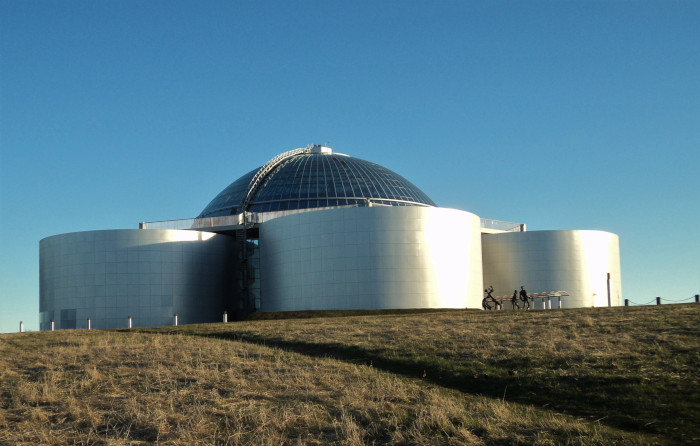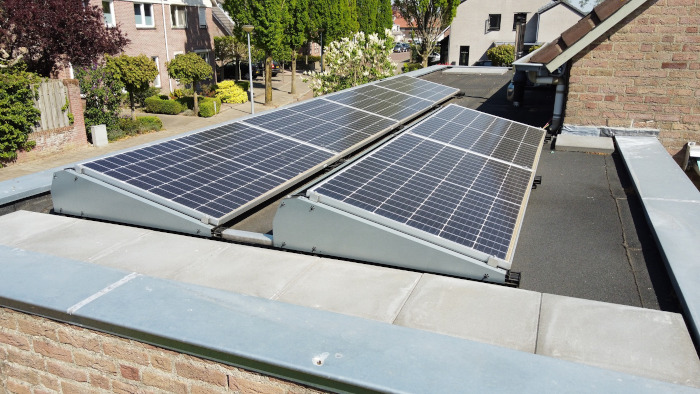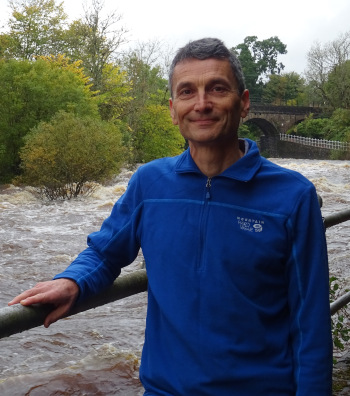

By Neil Kitching
Government advisers are struggling to recommend ways to heat our homes that are effective, acceptable to the public, not too expensive and don’t pollute our atmosphere. Here are my personal thoughts on this great conundrum.
Gas, gas, gas. The UK has ‘benefitted’ from access to cheap gas from the North Sea. However, we have got lazy. We haven’t bothered to build new homes to a high comfort standard, our existing homes are badly insulated, many of us overheat our homes, we expect low prices and we don’t want change. The war in Ukraine has finally brought us to our senses. As our North Sea gas declines, do we want to rely on importing gas from Russia and the Middle East to keep us warm? Meanwhile, Denmark, which did not have access to its own gas, has invested for the last three decades in heat networks – pumping hot water under streets into people’s homes. Initially this water was heated by coal or by heat from waste incinerators, but increasingly this has shifted to biomass, heat pumps and even solar thermal combined with large storage tanks.
So, Denmark is one example that we can follow. However, it requires a centralised planning system to dig up the streets, lay pipelines and connect homes. It is only really cost effective if all buildings connect, but the UK seems to be reluctant to ‘force’ householders to connect, instead insisting on freedom of choice.
Other options include heat pumps in individual properties, burning biomass or replacing ‘natural’ gas in the existing gas network with biomethane or even hydrogen. Heat pumps ‘capture’ natural heat from air, water or the ground and use electricity very efficiently to boost the temperature of this heat. Heat pumps are more expensive to install than gas boilers and they may require other upgrades such as larger radiators as they operate more efficiently at lower temperatures than gas central heating. An extensive roll out of heat pumps will increase overall electricity demand (on top of EVs) and could result in a huge peak in electricity demand in the early mornings and evenings in winter. However, there are solutions to this outlined below.
Biomass supplies are limited and cause air pollution so are not a solution in urban areas. Hydrogen or biomethane might sound like an easier, less disruptive solution. But there are limited sources of biomethane whilst hydrogen is only ‘green’ if no carbon dioxide is released when producing it. Most hydrogen is produced from natural gas, releasing carbon dioxide in the process which would then need to be captured, transported and buried safely underground. Clearly this will be more expensive than simply burning natural gas. Alternatively, hydrogen can be made by electrolysis, using renewable electricity, but it would be more efficient to use this electricity in heat pumps. Finally, burning hydrogen in a boiler can release nitrous oxide, a powerful greenhouse gas. I don’t see hydrogen as being a sensible solution to heat our homes.
Of course, an alternative is to design out the need for heat. It is possible to build houses to ‘passivhaus’ standards where the insulation is so good that virtually no heating is required to keep your house comfortable. This might sound ideal, but it is expensive and resource intensive, particularly to retrofit existing homes.
Invest in energy efficiency. New regulations should force house builders to build homes that don’t require a significant heat source (we should also stop building ever more houses in the countryside). Ban double glazing. It is not good enough, all window replacements should be triple glazed. All doors should be to a similar well-insulated standard. Subsidise, and provide loans, to householders to install underfloor insulation.
Based on local circumstances, Councils should ‘zone’ all properties and houses within their boundaries. This should be done through public consultation.
Commercial properties and houses in dense city centres should be zoned for heat networks.
Blocks of flats and apartments should be heated by a mini heat network powered by a centralised heat pump. The heat would be sourced from boreholes dug in local parks or car parks, or by a local water source if available.
Houses in the suburbs should be heated by individual air sourced heat pumps.
Dense housing, such as tenements or terraces, where it is deemed difficult to install heat networks, should be heated using the limited sources of biomethane through the existing gas network. These can be combined with hybrid heat pumps to increase efficiency. In this case, the heat pumps operate during the autumn and spring, with the biomethane mainly used during very cold weather.
Rural villages can be supplied by mini ground sourced heat networks. Isolated houses and farms by ground or air sourced heat pumps, or by biomass if very poorly insulated.
The important thing is that this all requires a strong dose of centralised planning, backed up by regulations, and yes, limited choice for individuals. It is futile to expect millions of individuals to make the ‘correct’ heating choice, source an installer, select the best equipment and supervise and inspect installations.
Freedom of choice will lead to chaos! Householders should be given warning of when their local gas network will be cut off. They will then have the choice of being connected to the relevant heating choice for their zone (mainly heat pump or heat network) or rely on direct electrical heat. This isn’t so different to the installation of the UK gas network in the 1970’s. Householders had the choice to connect to it, or continue with direct electric or coal fire heating.
For rural areas, oil and calor gas for heating should be phased out.
We need to smooth out the potential peak electricity demand. Fortunately there are ways to do this using storage and smart electricity meters. Heat can be stored in your house in the form of hot water tanks or ‘heat batteries’. So this can be heated at any time of day, or even during low electricity demand at night. If you have solar panels on your roof, then this can be connected to a battery, so you can use your own stored electricity to run the heat pump, reducing peak demand on the grid. And if your house is well-insulated, then electricity companies will pay you to switch off your heat pump during their peak demand. A win-win.

Even better, heat networks can be combined with large scale water storage allowing even greater flexibility. In rural areas, it is perfectly possible to heat hot water in the summer using solar energy, and store it for months in huge pits, to be used during the winter months. So innovation and ingenuity can overcome many of the potential risks to the electricity network.
A mix of grants, loans and subsidies varying depending on whether it is social housing, private rented or owner occupied. But, it shouldn’t be left to the occupier to claim these grants. A trusted organisation, perhaps the Council, social landlord or energy company should offer you the relevant option for your zone. They would organise and inspect the work and claim any grants on your behalf. This change has to be made easy for the householder.
Will any of this happen? I don’t know, but we do seem to be inching towards this type of solution – but too slowly. But we will look back if the not too distant future and wonder why we lived in poorly designed homes, paid to import our energy and brought a dangerous flammable gas into our homes that contributed to global warming.
If you have enjoyed this blog, you might enjoy my book, Carbon Choices on the common sense solutions to our climate and nature crises. Available direct from me or my website. I am donating one third of the profits to rewilding projects.
